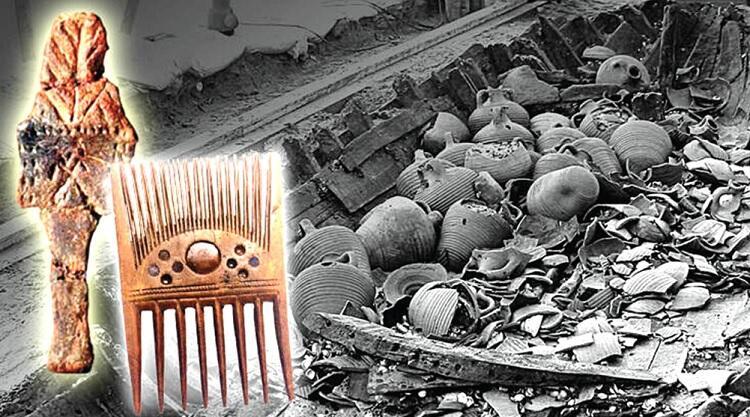Alpakut
Regular Member
- Messages
- 106
- Reaction score
- 18
- Points
- 0
- Location
- Saray
- Ethnic group
- Turkic/Iranian
- Y-DNA haplogroup
- L1b Elite Hun
Recent artifacts found to change Istanbul’s history - Turkey News (hurriyetdailynews.com)
Activate the subtitles
- October 13 2020 07:00:00
Recent artifacts found to change Istanbul’s history
Ömer Erbil – ISTANBUL

Due to the metro and railway constructions in the Beşiktaş district, Haydarpaşa and Yenikapı neighborhoods and
soil removal work in the Silivri district, so many artifacts have come to light over the years that have enriched the
history of Istanbul, reported the daily Hürriyet.
“In these excavations done by Istanbul Archaeology Museum, they have found so many artifacts that a new museum
could be built with it,” wrote the daily in its feature.
“These artifacts date back to 6,500 B.C., the founding date of the metropolis.”
According to the daily, the oldest “kurgan” style cemetery has been found in the Canbaztepe neighborhood in
the Silivri district.
Kurgan, which means “Castle” in old Turkish, is a name given to an ancient cemetery that is covered with sand
and looks like a small hill.
In the kurgan, skeletons of a commander from 3,500 B.C. and a spearhead from 5,500 B.C. have been found.
Amid the railway diggings in Haydarpaşa, some city walls and building remains of the historical Khalkedon,
“Land of the Blinds,” were explored.
In the metro works in the Beşiktaş district, traces of the first Turks of the metropolis have been unearthed.
“Archaeologists have found out some 80 kurgan cemeteries, axes and many pots and pans dating back to
3,500 B.C.,” wrote the daily.
In the Yenikapı neighborhood, officials came face to face with “a collection of submerged remains.”
Some 37 submerged ship remains, two canoe rows, 2,080 footprints from the ancient eras were unearthed.
Among the artifacts found, there were 1600-years-old ivory dices, 1500-years-old sandals with lines engraved,
“Wear these in healthy and happy days my lady,” and 1600-years-old wooden comb with lines carved in the
wood that read, “Oh Lord, please help,” in Latin.
“Officials can establish some several museums with different concepts with these artifacts,” the daily said, concluding its feature.
Turkey,
Activate the subtitles
Last edited:

